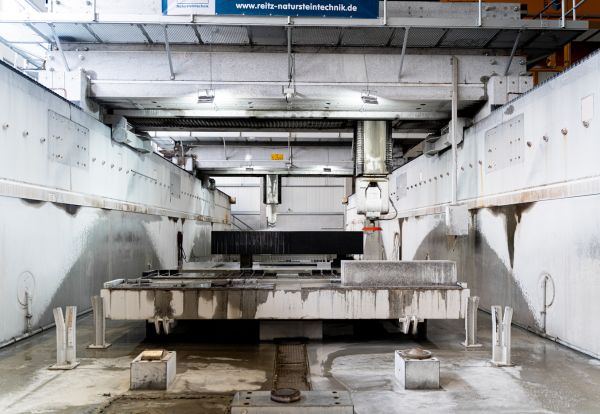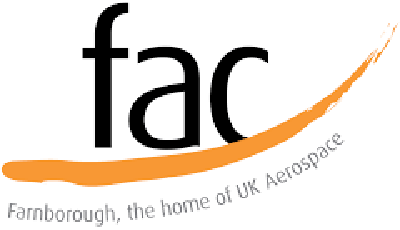Measurement Cycles Carved in Stone with Precision
Reitz Natursteintechnik KG is an expert in the planning, design, and manufacturing of highly precise machine components made from granite. To ensure efficient and above all safe processing, the simulation software Vericut is used—with the benefit of: process-reliable production and reduced workload for employees.
The origins of the company Reitz go back to 1946, when Herrmann Reitz began extracting raw stone from his own quarry in Asslar. With the entry of his son Friedel Reitz, gravestones were produced starting in 1958. The third generation, Egbert Reitz, continued gravestone production from 1984 to 1987 before the first granite surface plates fundamentally changed the business model and led to the founding of E. Reitz Natursteintechnik e.K. in 1986. Today, Christopher Reitz, the fourth generation and current managing director, is writing the next chapters of the company’s story. His mission: to place modern customer needs even more at the centre of the company.
“Today’s machine components from Reitz combine the million-year-old material stone with cutting-edge technology. For over 35 years, we’ve been manufacturing precision components from granite and offering not only system assembly but also custom solutions and complete systems—all from a single source, from idea to commissioning,” says Christopher Reitz.
The company, based in Asslar, Hesse, currently employs around 140 people. Its clients mainly come from the semiconductor, optics, general mechanical engineering, automation, metrology, printing, and medical technology sectors.
Competitive Edge with Granite in Mechanical Engineering
“We’ve been experts in processing natural hard stone for over 60 years—a tradition we’re proud of and also feel committed to,” says Reitz.
In mechanical engineering, especially in machine tool construction, achieving top precision and performance is essential for staying competitive. The machine bed plays a key role. That’s why more and more manufacturers are literally building on granite.
“Due to its physical properties, granite offers clear advantages that neither steel nor mineral casting can match: intrinsic stability, temperature resistance, vibration damping, and guidance accuracy make granite the ideal material for precision machines,” explains Reitz.
It’s no surprise, then, that granite is widely used in measuring and test stands as well as coordinate measuring machines for components like surface plates, tables, and machine frames.
In-House Built Gantry Milling Machines
“Our granite comes mostly from South Africa, Spain, France, and Austria. It’s either delivered in pre-cut slabs or as raw blocks that we cut in-house. The workpieces vary in size—from 250 x 250 mm to up to 13 meters. The largest we’ve ever made was 13 x 1.5 x 1 meters and weighed about 65 tons,” adds Reitz.
To process such blocks precisely, Reitz relies almost exclusively on machines developed and built in-house: four gantry-type milling machines and two 5-axis gantry machines, all controlled by Siemens 840D.
To ensure safe, fast, and precise granite machining, the company uses Vericut simulation software.
“Granite is a natural product, so the surface is never perfectly flat. To prevent tool collisions during processing, we developed a process with Vericut that virtually eliminates this risk,” explains Reitz.
Stephan Meurisse, Marketing Manager at Vericut, Deutschland, adds:
“Downtime, damaged tools, costly collisions, unusable parts, long setup times, wasted materials—all of that costs time and money. Vericut helps our customers avoid these time and cost traps.”
Collision Avoidance as a Top Priority
Vericut has been the industry leader in NC simulation, verification, and optimisation for all types of CNC machining, as well as additive and hybrid manufacturing, since 1988.
“Vericut eliminates the need for manual setup, saves valuable operator time, and protects our machines,” says René Maschlanka, responsible for sales and project management at Reitz.
Intelligent Process Flow
Granite blocks up to 13 meters long are typically delivered with +3 to 5 mm oversize. They are then machined to a flatness of 20 to 5 µm. Since granite is very hard (Mohs hardness 6–8), only 0.1 mm of material can be removed per cut.
“After visual inspection, the operator selects a measurement point pattern, generating two automatic measurement programs in the CAM system. The first determines the block’s position, and the second maps its surface—both via probing cycles,” says Maschlanka.
Each probing cycle consumes valuable machine time, so it’s done as little as necessary, but as much as required.
The resulting programs are converted into NC code and simulated in Vericut. Once verified, the programs are run on the machine.
“The returned measurement points describe the actual surface condition, and from that data, a machining program for a precise cuboid is automatically derived, then simulated in Vericut before execution,” explains Meurisse.
The finished cuboid is then drilled for guide rails, drives, spindles, sensors, and attachments. After stainless steel thread inserts are glued in, the component is sent to the climate-controlled precision lab for final machining.
“Naturally, these final programs are also validated with Vericut,” Maschlanka emphasizes.
Stress-Free Work Thanks to the Digital Twin
“We use a special CAM system for granite processing. We built the interface to Vericut ourselves. It lets us precisely capture the position and shape of the workpiece and simulate automated steps without manual setup,” says Maschlanka.
The simulation helps detect unnecessary movements, clamping errors, and wrong tool usage before they happen.
“Now our programmers and operators are far more relaxed—they know their programs will run safely, with no crashes.”
Some machining processes at Reitz can take over 40 hours. Previously, the operator had to stand by the entire time. Now, they run the simulation on a PC, press start, and only check in occasionally.
“The integrated Vericut Reviewer shows us when that approach makes sense,” says Reitz.
A Handy Tool for Machine Operators
Vericut Reviewer allows users to interact with the simulation file (rotate, pan, zoom) on any Windows PC or tablet. It helps build trust in new processes.
“Operators, shop floor staff, or engineers can review simulations and confirm the project is correct before running it on the machine,” says Meurisse.
“Our staff love the Reviewer. It shows the full machining sequence, highlights critical steps, and helps with prep—like planning supports, tools, and clamping,” adds Maschlanka.
Conclusion
Thanks to Vericut, tool breakage and collisions due to programming errors are a thing of the past at Reitz Natursteintechnik KG.
“Vericut is a huge help and a great tool. It’s easy to use, gives programmers confidence, avoids costly collisions, and keeps our operators at ease,” summarises Christopher Reitz.
Stephan Meurisse adds:
“It was also an exciting and educational project for us. Normally, we work in metal machining—not granite. But this project shows how Vericut can safely and efficiently handle even multi-ton granite blocks.”






